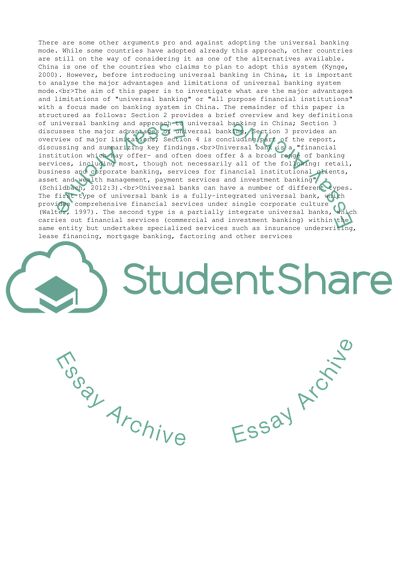Cite this document
(Assess the advantages and limitations of universal banking or all Essay, n.d.)
Assess the advantages and limitations of universal banking or all Essay. https://studentshare.org/finance-accounting/1875892-assess-the-advantages-and-limitations-of-universal-banking-or-all-purpose-financial-institutions
Assess the advantages and limitations of universal banking or all Essay. https://studentshare.org/finance-accounting/1875892-assess-the-advantages-and-limitations-of-universal-banking-or-all-purpose-financial-institutions
(Assess the Advantages and Limitations of Universal Banking or All Essay)
Assess the Advantages and Limitations of Universal Banking or All Essay. https://studentshare.org/finance-accounting/1875892-assess-the-advantages-and-limitations-of-universal-banking-or-all-purpose-financial-institutions.
Assess the Advantages and Limitations of Universal Banking or All Essay. https://studentshare.org/finance-accounting/1875892-assess-the-advantages-and-limitations-of-universal-banking-or-all-purpose-financial-institutions.
“Assess the Advantages and Limitations of Universal Banking or All Essay”. https://studentshare.org/finance-accounting/1875892-assess-the-advantages-and-limitations-of-universal-banking-or-all-purpose-financial-institutions.


